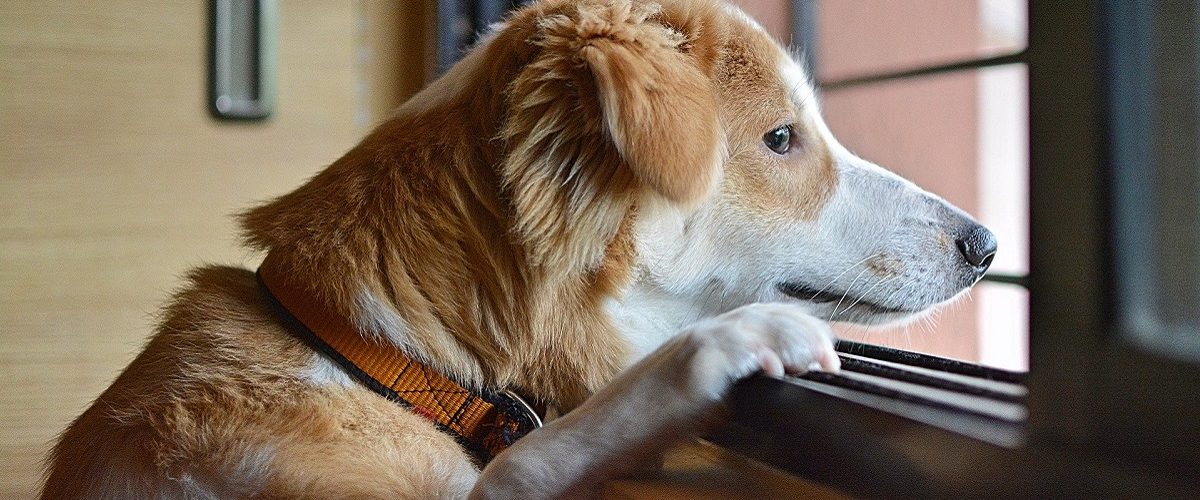During lockdown, animals and pets have had to adapt to a whole new way of life, just like their owners. As lockdown eases, pet psychologist Heather Venkat offers tips on how to help pets readjust without anxiety
You may have noticed that your pets have had lockdown anxiety. Perhaps they have become more (or less) active, or more or less anxious? They could be displaying a completely new behaviour, such as barking or whining.
They are more likely to be anxious and stressed out if their owners are
And who can blame them? We have all had to adapt to a new way of life, with all the stresses and strains that brings. And pets feed off the energy of the people around them. They are more likely to be anxious and stressed out if they notice their owners are too.
A pet will often be able to sense if someone isn’t well too – and may act strangely around them. Also, if you’re having to take care of other family members at home, or are out working long hours as a key worker then your pet will be getting less attention.
You being at home might have been stressful for them
Pets with homeworking owners may be stressed out simply because they are constantly being turned away or ignored. They could also be alarmed at the volume and tone of your ‘work voice’. Shouting on the phone or complaining about a co-worker could cause the pet to think that they did something wrong.
You may decide to shut your pet out of the room so they don’t disturb you while you’re working. But that could make your pet sad because they don’t understand what they did wrong.
Most family members are at home for longer periods of time at the moment, which pets won’t be used to.
Pets typically sleep for a large part of the day, with occasional play sessions in-between. If there is more noise and action during the day, the animal might feel disrupted and won’t always respond well to this extra attention. Forcing interactions will only stress them out more and could cause them to play up.
With gyms and other sports facilities closed, you may have taken up exercise at home, which could cause alarm in your pet. You might be taking your pet along on regular walks or runs, but they might not be able to cope with such a drastic increase in activity.


As well increasing your physical activity, you may be taking up new hobbies at home to cure your boredom. Pastimes such as playing a new instrument, watching loud movies throughout the day, or even painting (the fumes could irritate) might confuse or scare your pet.
Have you added to the family? Or reduced playtime?
Now that you are at home more, you might have decided to add a new furry family member to the household. But the quick addition of a new animal could cause the pet that is already there to display destructive, jealous, or anxious behaviours.
And if you have a dog that’s usually a social butterfly, they could be feeling lonely and bored without other dogs to play with. But don’t make the mistake of plying your pet with treats. With more people around, your pet may be getting more food and table scraps, which can cause them to gain weight or even become ill.
Do you even know what your pet does during the day normally?
That said, it’s worth noting that you might start noticing perfectly normal behaviours in your pet that you just haven’t noticed previously. Vets have received reports of animals having seizures, only to find the dog is just having a good ol’ dream, yipping and attempting to run in its sleep!
We have also heard reports of dogs being very lethargic, when in reality they have always just slept a lot during the day. Whatever the case may be, it’s important to monitor your pet to keep an eye out for any changes, just in case there really is a problem.
Know your pet and what they like or dislike. Try to continue spending time doing their favourite activity, such as a walk or swim, if possible. Avoid making drastic changes to their home environment. That means not starting huge construction projects in the home or replacing their old toys and bedding.
How to support your pet during lockdown
Try to keep a routine, even if it is different from before. For example, if you don’t have a set schedule for work but just need to complete your required tasks for the day, still try to wake up at the same time every day.
If you normally let your dog sleep in your bed on the weekends, keep that up, even if the weekend doesn’t feel like a weekend anymore.
Try to keep a routine … don’t punish your pet for acting differently
Don’t punish your pet for acting differently. For example, dogs that are acting out shouldn’t be crated for long periods of time. Instead, they should be given outlets for their energy, such as a game of fetch or a nice calm walk.
Make sure they have a place to retreat to for safety. Try putting their bed away from the hustle and bustle of the living room. Snuffle mats help dogs de-stress by engaging their brain in natural sniffing behaviour. Slow feeders slow down their eating improves digestion and comfort.
Get the whole family on board with your plan so that there is consistency. Everyone should know how much to feed your pet, who is responsible for entertaining them, and who will clean up after them. That way, they are not getting too much or too little food or physical activity/interaction.
Remember, while your pet will feed off your negative energy, they can help calm you down too. So, if that’s what they like, give your pet regular hugs and cuddles.
The ‘new normal’ and how to avoid separation anxiety
As lockdown restrictions lift you can slowly re-introduce your pet to their old activities and routines.
Just as an athlete wouldn’t run a marathon after sitting on the couch for months, slowly let your dog regain their strength and stamina before going on that big hike.
Above all else, be patient and kind. Like us, they might be confused and stressed
We definitely don’t want pets to get separation anxiety, so leave them with a long-lasting treat or toy stuffed with something tasty to distract them when you go out. If possible, try to get them used to you being gone in shorter bursts before going out for longer periods. They get lonely, just like we do.
Above all else, be patient and kind with your pet. Like us, they might be confused and stressed, and will all react to lockdown in different ways.
Contact your vet if you have any major concerns about your pet’s behaviour that haven’t resolved after a normal period of time. But it won’t be long before we’re all able to enjoy our regular activities and routines together again.


Heather Venkat (@DrHVenkat) is a pet psychologist and veterinarian consultant for vippuppies.com




Add comment